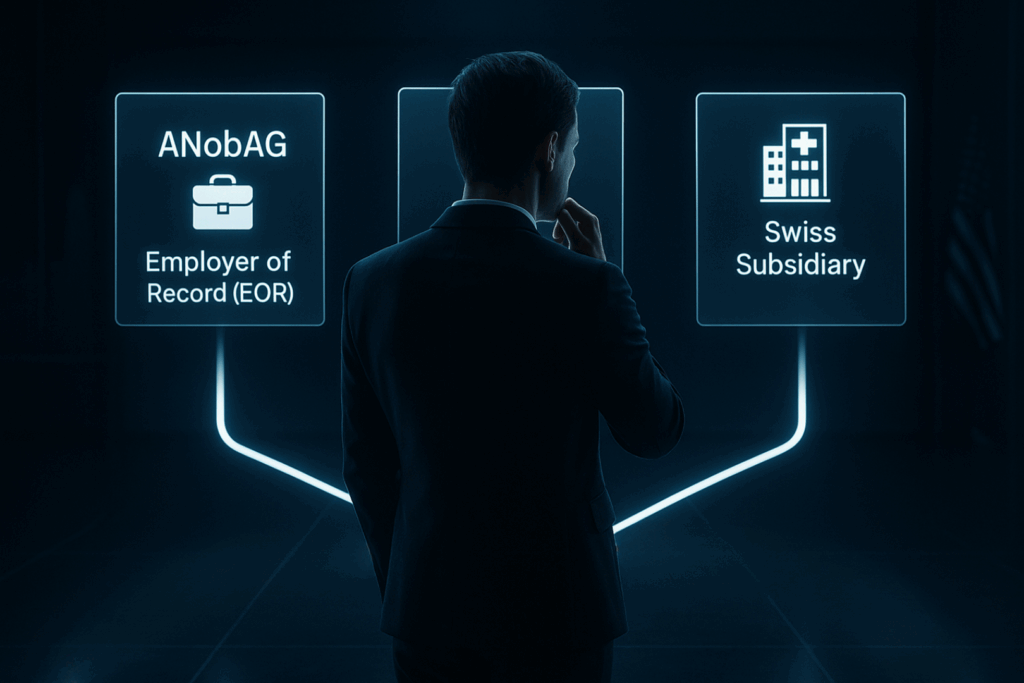Tax on Worldwide Income and Worldwide Wealth

If you are a Swiss citizen or a foreigner with tax residence in Switzerland and have income from abroad and/or assets abroad, you must declare them in your Swiss income tax return. This is because worldwide income and assets are included in the calculation of the tax rate in Switzerland. In this article, we will answer important questions you may have about this and show you how to keep your tax burden as low as possible.
Am I Liable to Pay Taxes in Switzerland at All?
The Swiss tax system distinguishes between personal and economic affiliation when assessing tax residence.
Personal Affiliation
If you work and live in Switzerland, you are liable to pay income tax there. Likewise, you must file a tax return in Switzerland if you receive income exclusively from abroad but have your tax residence in Switzerland. Your worldwide income and assets are thus subject to the tax progression in Switzerland.
According to the law, you are liable for tax if you are gainfully employed in Switzerland for at least 30 days. If you live in Switzerland and are not gainfully employed, you are liable for tax after at least 90 days after changing your residence to Switzerland.
Economic Affiliation
If you are resident outside Switzerland for tax purposes, but maintain business premises or own real estate there, or are gainfully employed there, those parts of your income are subject to Swiss tax and must be taxed in Switzerland. Again, your worldwide income and assets are used to calculate your tax rate.
Does Everyone Have to File an Income Tax Return?
In principle, everyone with tax residence in Switzerland must file a tax return. Unlike many other countries, Switzerland does not have a general withholding tax. This means that employed persons have their gross salary transferred by their employer and this is not automatically paid by the employer to the tax authorities. Taxes are then calculated as part of the annual tax return.
« Accordingly, the double taxation agreement provides that the income is taxed in only one of the two states. »
I Already Pay Income Tax Abroad: Do I Have to Pay Again in Switzerland?
Income is taxed where it is received and where the recipient is resident for tax purposes. For people who do not work in the country where their tax residence is located, this rule would result in double taxation of income or assets.
Many countries in the world have therefore concluded double taxation agreements with numerous others in order to avoid precisely such cases. Switzerland also has such agreements with many countries. Accordingly, the double taxation agreement provides that the income is taxed in only one of the two states.
Therefore, if you already pay tax on your income in the country from which you receive it, you do not have to pay tax on it again in Switzerland. However, you must declare it in your Swiss tax return, because it affects your tax rate to be paid in Switzerland.
What Is the Property Tax?
Swiss wealth tax is levied independently of income and applies to both movable and immovable assets in Switzerland and abroad. Like income tax, wealth tax is payable by anyone who is resident in Switzerland for tax purposes.
All assets owned by you, both in Switzerland and abroad, must be declared in your tax return. Your worldwide assets are included in the calculation of your wealth tax rate, but the tax is only levied on assets located in Switzerland.
I Already Pay Taxes on a House Abroad: Do I Have to Declare That Too?
You must also declare properties for which you already pay taxes abroad in your Swiss tax return. You do not have to pay taxes in Switzerland for foreign assets. The respective values are only included in the calculation of your tax rate.
In addition, if you rent out the house abroad, you must also declare the rental income under your foreign income. These will then affect your income tax rate. The same applies to securities accounts abroad: dividend payments or capital gains from sales are added to your income.
I Have Never Declared My Assets Abroad Before: What Should I Do?
If you do not want to be caught for tax evasion sooner or later, it is advisable to file a voluntary declaration in this case. You submit this to the tax authorities together with a complete list (going back up to 10 years) of all the assets you have abroad. Self-disclosure saves you from a fine in most cases, and you may have to pay tax on the assets and interest on late payments.
Am I Eligible for a Lump Sum Tax on My Assets?
In some circumstances, foreigners have the advantage of being able to take advantage of lump-sum taxation of their assets. This is usually more favorable than exact taxation according to actual assets.
If the following four criteria apply in your case, ask your cantonal tax authority whether you qualify for lump-sum taxation:
- You are not a Swiss citizen
- You are subject to unlimited tax liability in Switzerland (for the 1st time or for the first time in at least 10 years again)
- You are not gainfully employed in Germany
- If you are married: Your spouse must meet the same requirements for your assets to be taxed at a flat rate
How Can I Save on Income and Property Taxes?
There are some legal ways you can reduce your tax burden in Switzerland. Here are two useful tips for you to get a head start on how you can save on taxes:
1. Change Residence Within Switzerland
If your living situation allows it, you can move to another canton where the tax burden is lower for you. Since cantons and municipalities sometimes have very different tax rates depending on the region, you can save quite a bit of tax here if you are flexible in terms of location.
2. Use Allowances and Cost Deductions in the Tax Return
Swiss tax law offers taxpayers in some cases generous benefits in the form of high tax allowances. Make the best possible use of these in your tax return. Certain costs are also tax deductible, such as the renovation costs for your vacation home abroad. To get the most out of your tax return so that your tax burden is kept to the absolute minimum, we recommend that you contact an expert who is well versed in Swiss tax law.
Do you seek a quick idea of the cost of our tax return service? If we have sparked your interest, you can send it to us without reservations, as it is a non-binding request. We will contact you promptly to discuss your situation with you.


